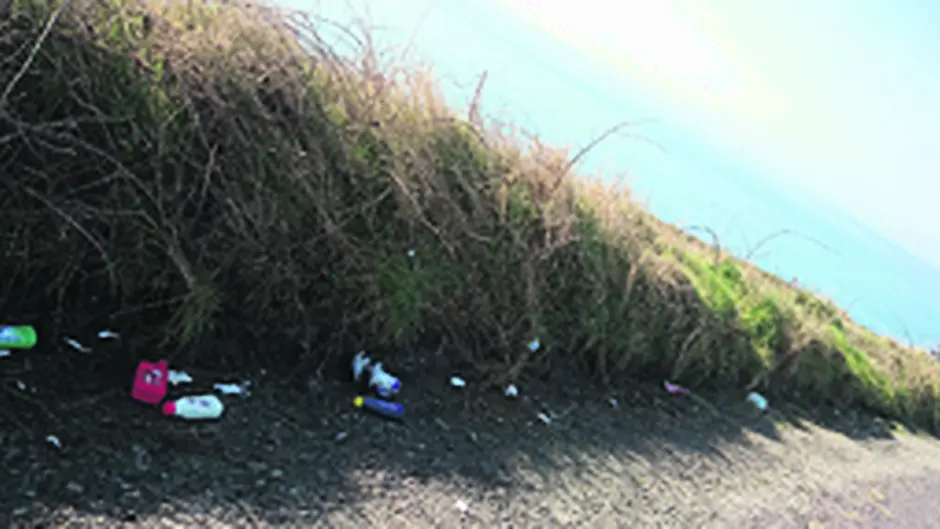As the National Spring Clean campaign gets underway, some locals are worried that reduced hours at Council rubbish dumps are leading to widespread 'fly tipping', reports Jackie Keogh
NATIONAL Spring Clean – an initiative that encourages every sector of society to actively participate and take responsibility for litter – can’t come a moment too soon for some, because the highways and byways of West Cork are ‘a disgrace.’
Finbarr Harrington, the chairman of Tourism West Cork, said he is horrified at the level of unauthorised dumping that is taking place around West Cork and he warned that the increased incidence of ‘fly tipping’ could pose a public health risk.
Mr Harrington, who lives on the Beara Peninsula, said he has seen everything from dead calves to old sofas being dumped, as well as household and commercial waste, in ditches, drains, lay-bys and forestry settings.
‘I’d like to think that these are isolated incidents, but my worry is that they can be attributed to the cutback in the opening times of Cork County Council’s Civic Amenity Sites in West Cork.
‘There has been a restriction in the opening times of the centres in Clonakilty, Ballydehob and Castletownbere and the problem has, correspondingly, got worse right throughout the region.’
Mr Harrington did, however, welcome the fact that staff resources at the Civic Amenity Sites have been redeployed to litter patrol and he said he hoped this would serve as a deterrent.
He also welcomed that the Garda Siochana and the Department of Agriculture are currently investigating a number of reported cases of fly tipping, including the disposal of two dead calves at the side of the road in Castletownbere.
Aside from the health and hygiene problems posed by indiscriminate dumping, Mr Harrington pointed out: ‘It is also having a hugely negative impact on the aesthetics of our naturally beautiful landscape. We should be investing in our countryside, not systematically destroying it.’
To prevent these isolated incidents and to eradicate ‘fly tipping’, Mr Harrington suggested that communities should work together, particularly during National Spring Clean.
‘It’s a good place to start if we are to clean up our act,’ he said.
Cllr Michael Collins (Ind), who lives on the Mizen Peninsula, said he, too, can see the consequences of reducing the opening hours of West Cork’s Civic Amenity Sites.
He claimed the early, and sometimes day-long, closures have led directly to an increase in illegal dumping, and he also believes it will have a detrimental effect on the area’s tourism season, and the promotion of the West Cork portion of the Wild Atlantic Way.
‘This development is very disappointing for the region’s many Tidy Town activists, who do an awful lot of work on a voluntary basis every year to make sure their community looks its best, especially in time for the summer season.
‘We have to face the fact that the population of West Cork triples during the summer months, so the question arises: Will we have to deal with three times the problem?
‘My fear is that when people are heading away home after their holidays and they find the Civic Amenity Site closed, they will discard the rubbish on the side of the road, feeling they have no other choice.’
Francis Hunt, who is the PRO of the Skibbereen Tidy Towns Committee, said the problem of litter and indiscriminate dumping is insidious. He said the committee volunteers, as well as FAS employees, are spending more and more time on litter control.
‘The place would be in a very bad state if we didn’t do it,’ said Mr Hunt, who reported that two big, black plastic bags of nappies and rubbish were thrown on Council land in the town’s main car park one night recently.
Mr Hunt was referring to a clean-up that took place on the night of Wednesday, April 1st, which is just one of three routine litter patrols that takes place in the town every week.
‘More volunteers are needed,’ he said, ‘particularly if we are to make inroads in the National Spring Clean, which is a worthwhile initiative because it makes people aware of the problem and encourages them to take an active role in cleaning up their community.’








